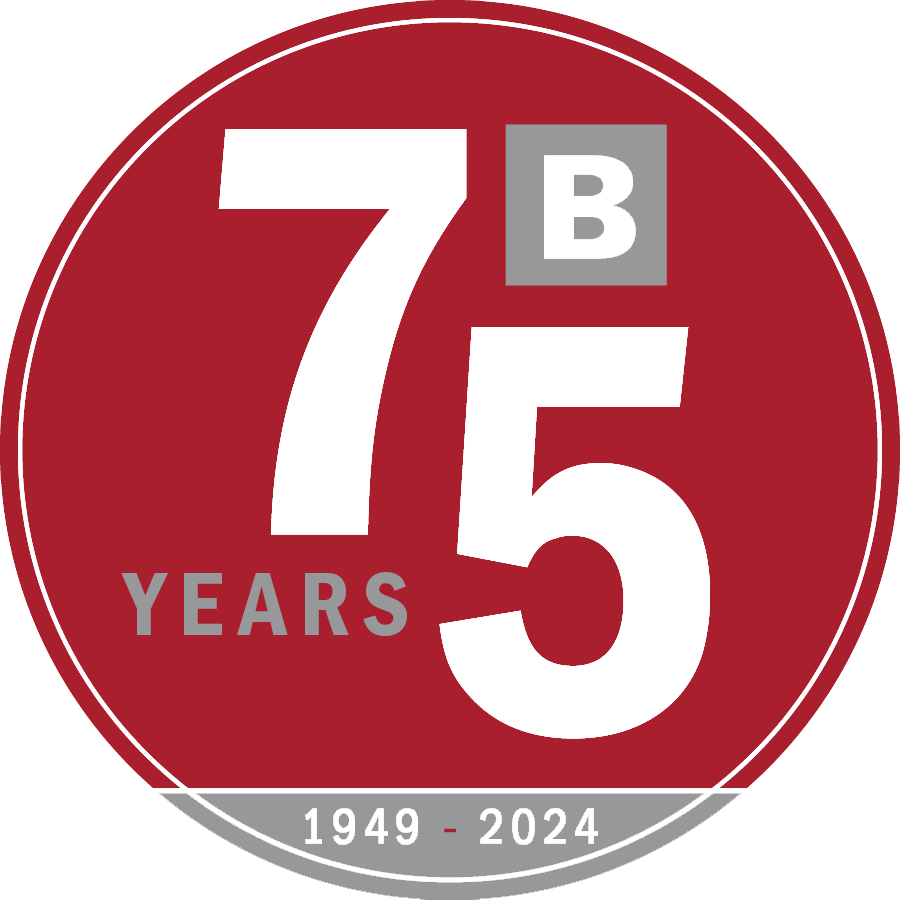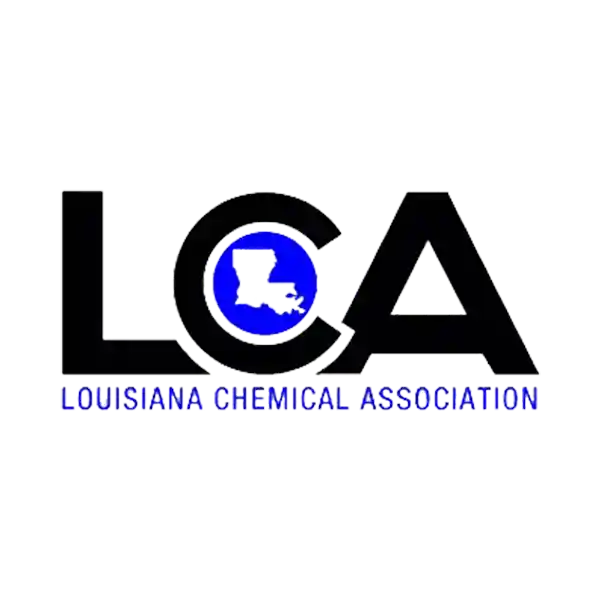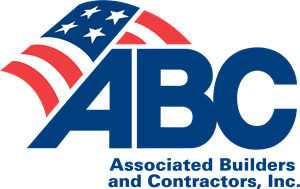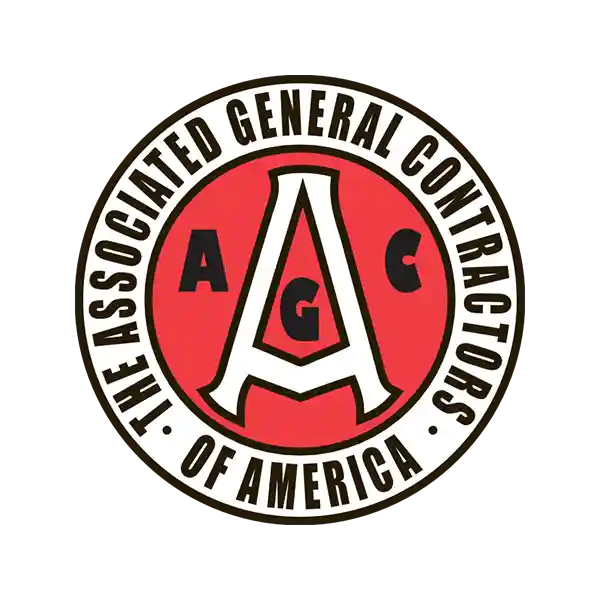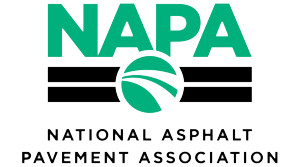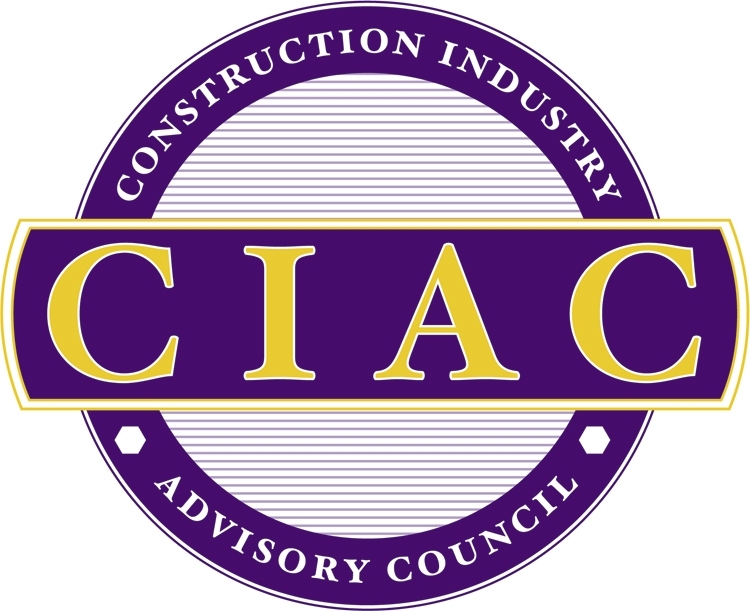Our Commitment to
Sustainability
—
In an era where sustainability is more important than ever, Barriere is proud to be a part of the construction sector’s commitment to environmental consciousness. We are inspired by our parent company CRH’s efforts to preserve resources and advance climate resilience in the built environment. And so — with a steadfast dedication to producing high-quality road infrastructure while minimizing our ecological footprint — Barriere is embracing new technologies, products and policies to help us reach our sustainability goals.
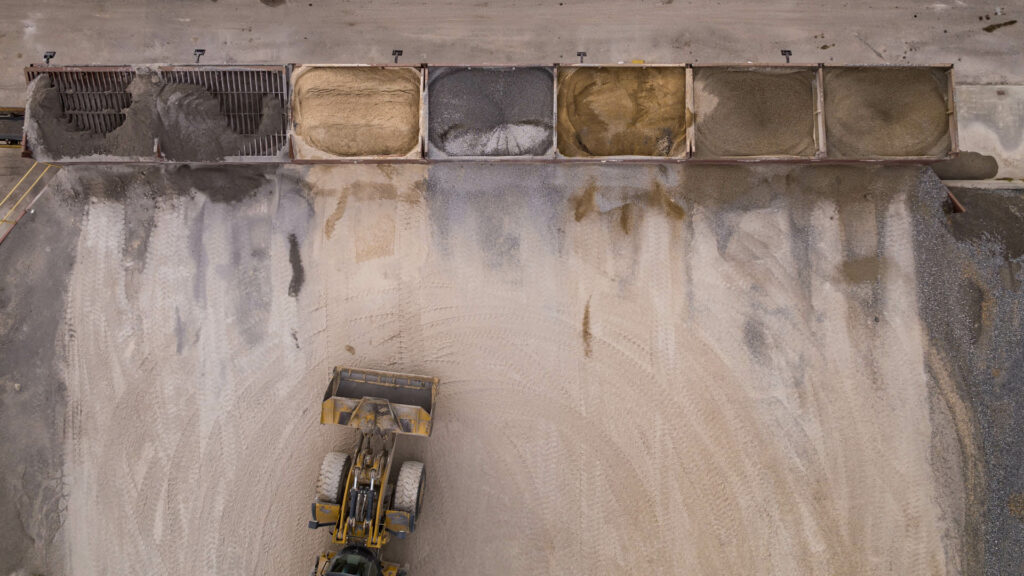
Asphalt Waste
Reduction Policies
—
Reducing waste is a vital part of Barriere’s sustainability efforts. Our asphalt plants have a target of .8% waste of total tons produced. In 2022, we achieved .39%, and in 2023 we are averaging .59%. We are reducing waste by eliminating startups and managing the sequence of our daily orders. Our field operations teams play an important role in our waste reduction efforts. They have intensified their focus on providing accurate scheduling and on increasing communication with plant operators. And 100% of our waste product is recycled in pulldown piles and then crushed to be reused as recycled asphalt.
Warm Mix
Asphalt Technology
—
Compared to the high temperatures needed for traditional hot mix asphalt, warm mix asphalt (WMA) can be mixed at lower temperatures, making it a more sustainable solution. WMA uses less energy and reduces the amount of greenhouse gases and volatile organic compounds released into the atmosphere. Barriere’s use of WMA also translates into better working conditions for our construction crews and less wear and tear on equipment.
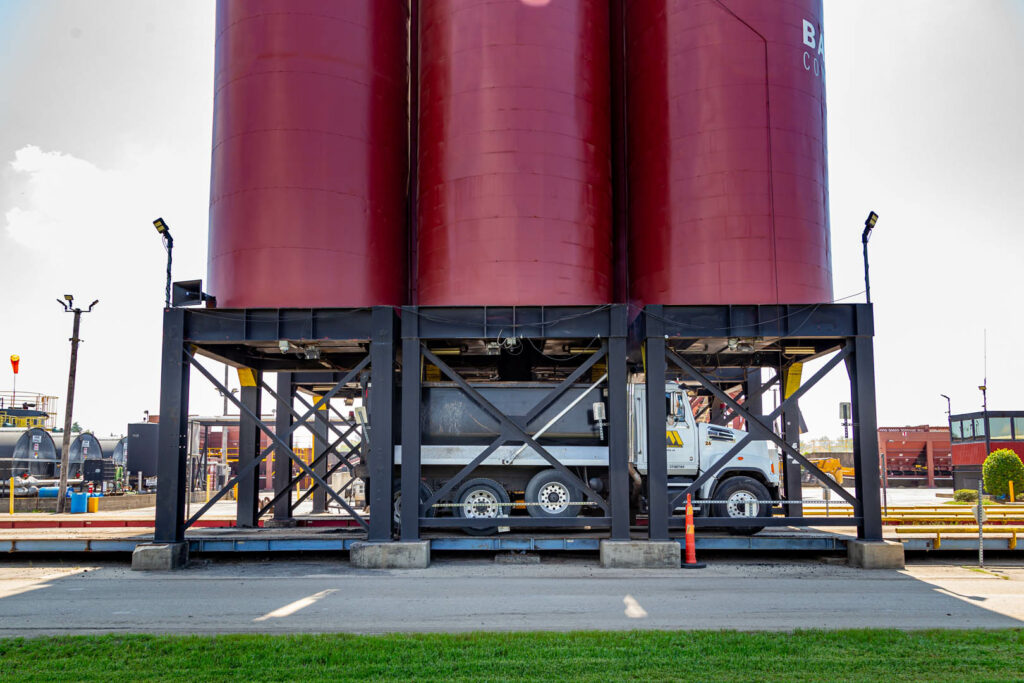
Porous
Asphalt Technology
—
Porous asphalt, also known as permeable asphalt, is an innovative pavement solution that allows rainwater to pass through the surface and seep into the ground below. Compared to traditional impermeable surfaces, porous asphalt is a specially designed mix that incorporates larger aggregate particles and fewer fine materials. The result is a pavement structure with interconnected voids that enable water to permeate through the pavement, effectively replenishing groundwater sources, reducing the strain on stormwater systems, and mitigating the risk of urban flooding. Such benefits are especially important in low-lying, flood-prone areas like New Orleans. By utilizing porous asphalt, Barriere is addressing critical issues facing the region — stormwater management, for example. Porous asphalt allows rainwater to infiltrate the ground gradually, which helps minimize the pressure on drainage systems during heavy rainfall.
In addition to helping alleviate the flooding issues that have historically plagued low-lying areas like New Orleans, Barriere’s use of porous asphalt aids in maintaining a sustainable water supply for local communities. When rainwater filters through the pavement, it undergoes a natural filtration process that removes pollutants and contaminants, resulting in cleaner water entering the local waterways. As the rainwater is absorbed, it also cools the surface and surrounding environment. This cooling process helps mitigate the heat island effect, a condition that’s increasingly typical of urban areas dominated by impermeable surfaces that absorb and radiate heat.
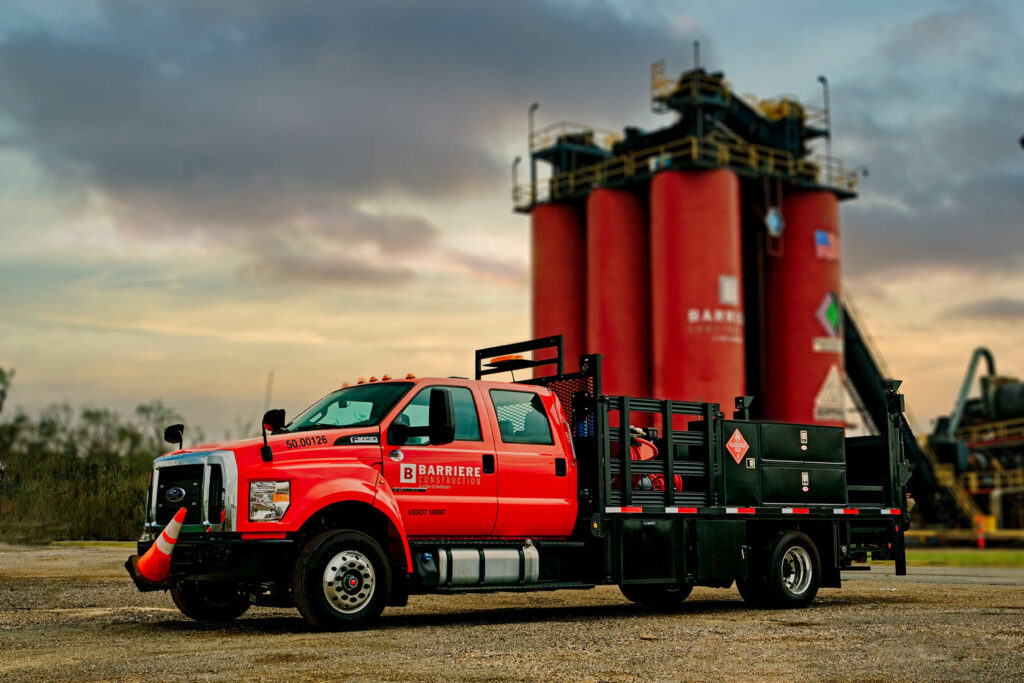
Idle Time
Guidelines
—
Barriere has instituted sustainability guidelines around idle time for vehicles and equipment. Idling is allowing an engine to run while the vehicle or equipment is not actively engaged in a work task. Limiting idle time helps reduce fuel consumption, exhaust emissions and preventative maintenance.
In addition to the environmental benefits, Barriere’s idle time practices are helping the company save money by reducing its needs for fuel and equipment maintenance. In addition to limiting engine warm up and shut down periods to five minutes or less, these guidelines stipulate that vehicles and equipment are not allowed to idle while parked or in a nonworking condition.
Paving the Way for a More
Sustainable Future
—
By embracing more sustainable products and policies, Barriere is demonstrating how progressive and cost-saving construction practices and policies can go hand in hand with environmental stewardship. We are not just building roads and highways; we are also paving the way for a more sustainable and resilient future. As the construction industry continues to evolve, Barriere will help lead the charge toward a world where infrastructure development and ecological preservation can coexist harmoniously.
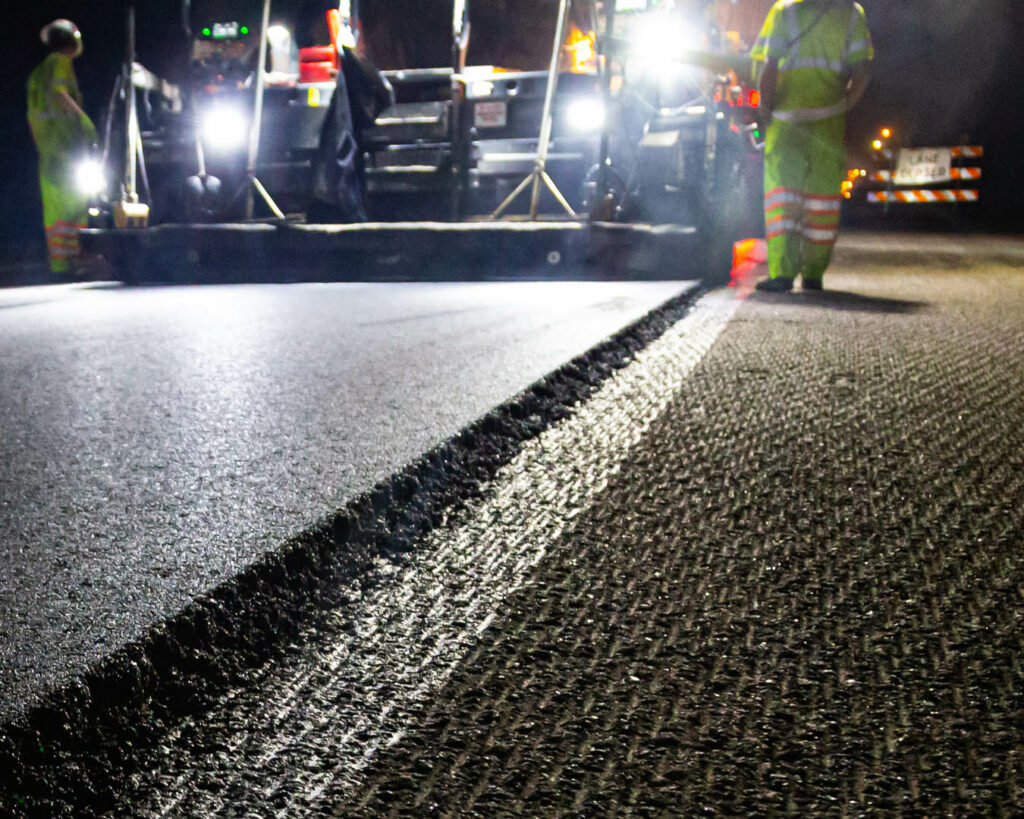
PROJECT
SPOTLIGHT
I-10 French Branch Bridge-
West Pear River Bridge
This $40 million road rehabilitation presented many challenges for our crew and the DOTD, as well as for the traveling public. We had to complete construction on a 10-mile stretch of highway—and do it safely and on a tight deadline. Which we did, 71 days ahead of schedule. Our efficiency saved the DOTD over $200,000.
WHAT OUR CLIENTS are saying

P.E., LADOTD Projectt Coordinator French Branch —

